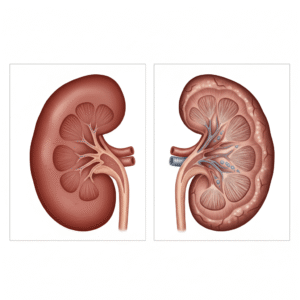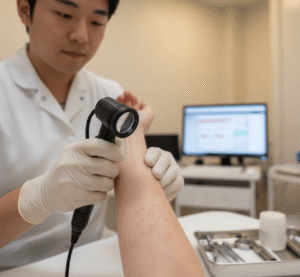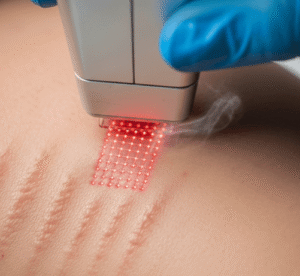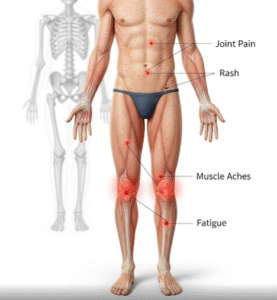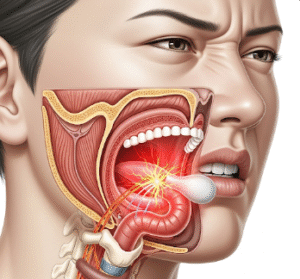Overview
Myocarditis is an inflammation of the heart muscle (myocardium), which can affect the heart’s ability to pump blood efficiently. In Korea, myocarditis is diagnosed and treated in specialized cardiology centers, with most cases caused by viral infections, autoimmune conditions, or adverse reactions to medications. Hospitals such as Seoul National University Hospital, Asan Medical Center, and Samsung Medical Center provide advanced diagnostic and therapeutic care, including cardiac imaging, immunotherapy, and supportive management.
What is Myocarditis?
Myocarditis is a condition in which the heart muscle becomes inflamed, impairing its electrical and mechanical function. This can lead to arrhythmias, heart failure, or, in severe cases, sudden cardiac death. Myocarditis can affect individuals of any age and is sometimes associated with viral infections such as influenza, adenovirus, or, rarely, COVID-19. Autoimmune diseases and certain medications can also trigger myocarditis.
Symptoms
- Chest pain or pressure
- Shortness of breath, especially during activity
- Fatigue and weakness
- Rapid or irregular heartbeat (palpitations)
- Swelling in legs, ankles, or feet
- Lightheadedness or fainting
- Fever and flu-like symptoms in viral cases
Causes
- Viral infections (e.g., influenza, coxsackievirus, adenovirus)
- Autoimmune disorders (e.g., lupus, sarcoidosis)
- Adverse drug reactions (certain antibiotics, chemotherapy, or immunotherapy)
- Post-vaccination reactions (rare)
- Bacterial infections or systemic inflammatory conditions
Risk Factors
- Recent viral infections
- Autoimmune disease history
- Use of medications known to affect the heart
- Weakened immune system
- Age extremes (infants and older adults may be at higher risk)
Complications
- Heart failure due to impaired cardiac function
- Dangerous arrhythmias leading to sudden cardiac arrest
- Cardiogenic shock in severe cases
- Chronic dilated cardiomyopathy
- Blood clots due to impaired circulation
- Long-term reduction in quality of life
Prevention
- Prompt treatment of viral or bacterial infections
- Avoiding medications that may trigger myocarditis without medical guidance
- Regular cardiac monitoring for individuals with autoimmune conditions
- Vaccination according to national guidelines to prevent viral infections
- Healthy lifestyle to maintain cardiovascular health
Treatment Options in Korea
Treatment focuses on reducing inflammation, managing symptoms, and supporting heart function.
- Diagnosis
- Electrocardiogram (ECG) to detect arrhythmias
- Echocardiography to assess heart structure and function
- Cardiac MRI for detailed imaging of inflammation
- Blood tests for markers of heart damage (troponin, CK-MB)
- Endomyocardial biopsy in selected cases
- Medical Treatments
- Anti-inflammatory medications (e.g., corticosteroids) for autoimmune-related myocarditis
- Heart failure medications (ACE inhibitors, beta-blockers, diuretics)
- Immunosuppressive therapy in severe autoimmune cases
- Antiviral or antibiotic therapy if an infection is identified
- Supportive Care
- Hospitalization for severe cases requiring monitoring
- Oxygen therapy and fluid management
- Lifestyle modification and rest during recovery
- Cardiac rehabilitation programs for long-term recovery
- Specialized Hospitals in Korea
- Seoul National University Hospital – Advanced cardiology and heart inflammation care
- Asan Medical Center – Multidisciplinary management including imaging and immunotherapy
- Samsung Medical Center – Comprehensive care for severe or complicated myocarditis
- Yonsei Severance Hospital – Long-term monitoring, rehabilitation, and counseling
- Long-Term Follow-Up
- Regular ECG, echocardiography, and MRI to monitor heart function
- Ongoing assessment for arrhythmias or heart failure
- Lifestyle guidance, medication management, and patient education
- Psychological support and counseling for affected individuals and families



